Amazing Benefits Of Vegan Omega-3
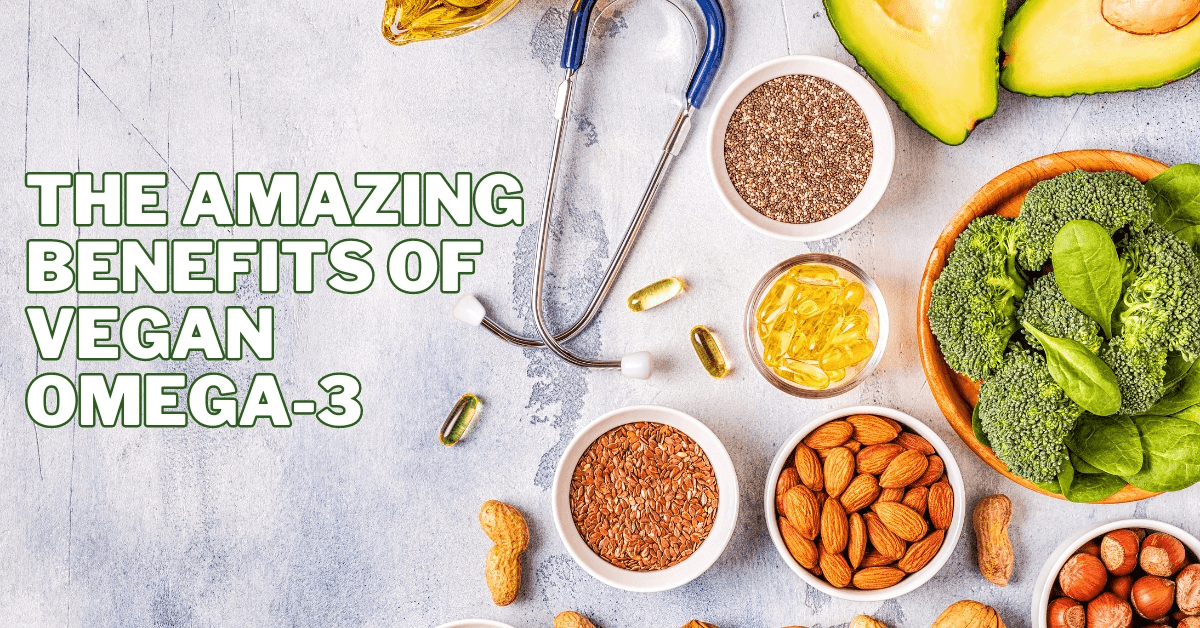
Amazing Benefits Of Vegan Omega-3
In recent years, the popularity of veganism has surged, driven by concerns for health, environmental sustainability, and animal welfare.
As individuals increasingly adopt plant-based lifestyles, there is a growing interest in understanding and optimizing the nutritional aspects of vegan diets.
Omega-3 fatty acids, renowned for their numerous health benefits, are crucial in supporting cardiovascular health, brain function, and overall well-being.
Traditionally sourced from fish oil, omega-3s have become a focal point in plant-based nutrition.
This introduction explores the benefits of vegan omega-3 fatty acids, delving into their nutritional significance, health advantages, and sustainable alternatives to traditional marine-derived sources.
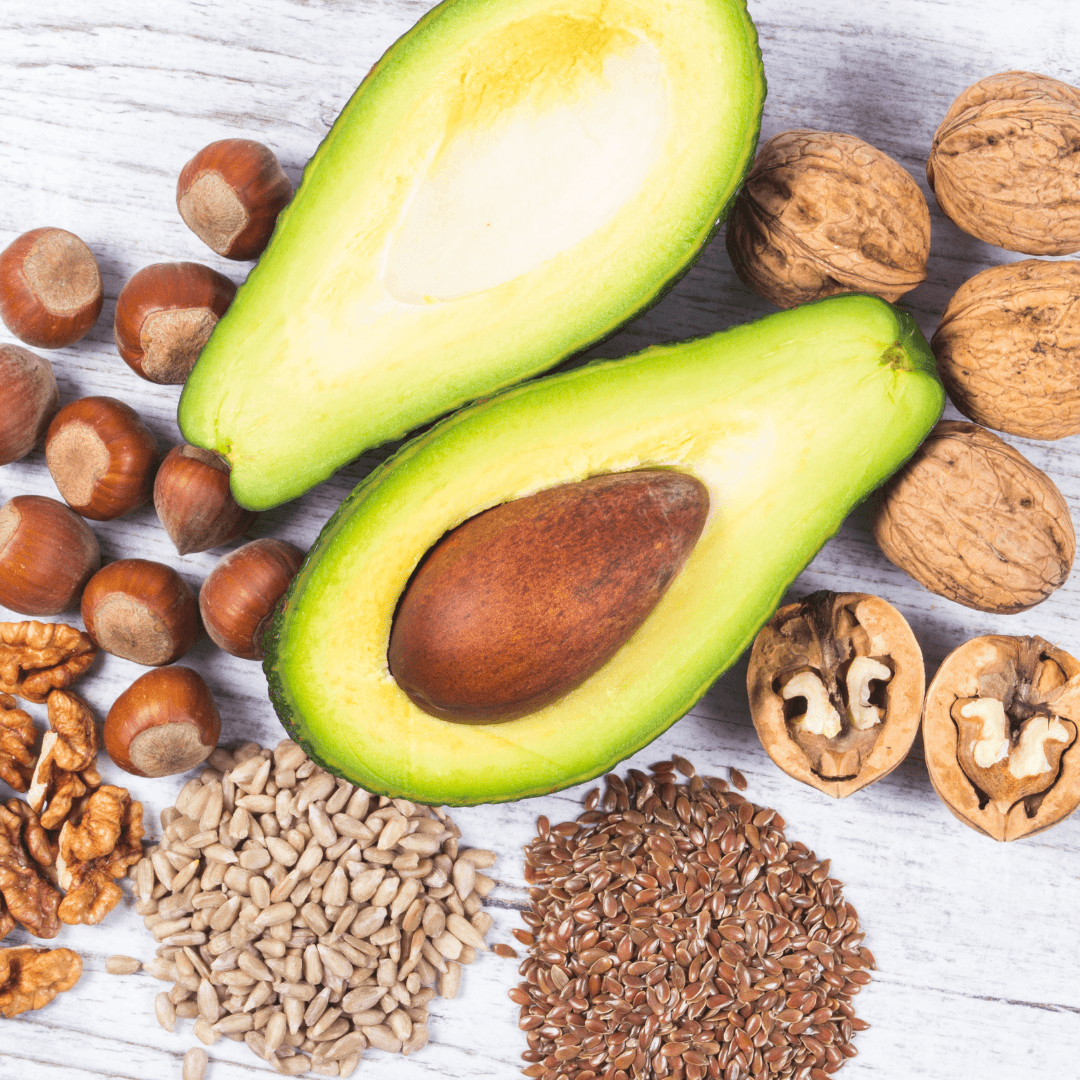
What Is Vegan Omega-3?
Vegan omega-3 supplements provide a plant-based alternative to traditional fish oil-derived omega-3 supplements.
These supplements usually include two essential omega-3 fatty acids: DHA (docosahexaenoic acid) and EPA (eicosapentaenoic acid).
EPA and DHA are necessary for many body processes, such as lowering inflammation and promoting heart health.
Fish get these omega-3s from the algae they eat, even though they have long been considered the main source of EPA and DHA in the human diet. This innovation allows for the creation of vegan-friendly omega-3 supplements.
By opting for vegan omega-3 supplements derived from algae, individuals can ensure they're meeting their nutritional needs without relying on animal products, which do not offer the full benefits of vegan omega-3.
This aligns with ethical and environmental concerns and offers a sustainable solution to the depletion of marine resources associated with traditional fishing practices.
Additionally, vegan omega-3 supplements provide an accessible option for those with dietary restrictions or preferences that exclude fish-derived products.

Benefits Of Vegan Omega-3
The benefits of vegan omega-3 fatty acids include supporting heart, brain, and joint health and promoting skin and eye health.
Their anti-inflammatory properties may alleviate symptoms of various conditions while potentially contributing to longevity and overall well-being.
1. Heart Health
Vegan omega-3 fatty acids, notably EPA and DHA, play a pivotal role in cardiovascular wellness. Studies indicate that they effectively lower blood triglyceride levels, dampen inflammation, and foster optimal blood pressure levels.
The combined effects of EPA and DHA reduce atherosclerosis and thrombosis, two heart disease risk factors.
Additionally, their anti-inflammatory properties contribute to arterial flexibility and endothelial function, crucial for maintaining healthy blood flow.
By incorporating vegan omega-3 sources like algae-based supplements into one's diet, individuals can actively support their cardiovascular system, potentially reducing the likelihood of developing cardiovascular complications and enhancing overall heart health.
2. Brain Function
DHA, one of the main components of omega-3 fatty acids, is crucial for cognitive function and brain health.
DHA is particularly crucial during brain development. It supports the growth and maintenance of neuronal membranes, facilitating optimal communication between brain cells.
Vegan omega-3 supplements, rich in DHA sourced from algae, offer a sustainable alternative to traditional fish-derived sources.
By incorporating these supplements into their diet, individuals can bolster memory retention, enhance concentration, and improve overall cognitive performance.
Whether for students seeking academic excellence or adults aiming to maintain mental acuity, vegan omega-3s support a healthy and vibrant mind throughout life.
3. Eye Health
DHA, a fundamental constituent of omega-3 fatty acids, is pivotal in maintaining optimal vision and overall eye health.
As a major retina component, DHA ensures the integrity and functionality of visual cells, thus supporting clear and sharp vision.
Vegan omega-3 supplements, sourced from algae, provide a sustainable and ethically sound option for obtaining DHA without reliance on fish-derived sources.
By including these vitamins in their diet, people can maintain eye health and possibly lower their risk of age-related macular degeneration, a prevalent cause of vision loss in older persons.
By prioritizing vegan omega-3s, individuals can safeguard their eye health and enjoy clear vision for years.
4. Joint Health
Renowned for their anti-inflammatory qualities, omega-3 fatty acids show promise in reducing joint stiffness and discomfort, which are frequently linked to arthritis and other inflammatory diseases.
By modulating the body's inflammatory response, omega-3s help reduce joint inflammation, easing discomfort and enhancing mobility.
Vegan omega-3 supplements, derived from algae, provide a sustainable and ethical source of these beneficial fatty acids.
Incorporating these supplements into one's diet may improve joint mobility, reduce reliance on conventional medications, and support overall joint health.
Whether managing arthritis symptoms or promoting joint flexibility, vegan omega-3s offer a natural and accessible solution for maintaining optimal joint function and enhancing quality of life.
5. Mood Regulation
The integral components of omega-3 fatty acids, EPA and DHA, profoundly influence mood regulation and mental well-being.
Research suggests these fatty acids are crucial in neurotransmitter function and brain signalling pathways associated with mood regulation.
By incorporating vegan omega-3 supplements sourced from algae, individuals can support optimal levels of EPA and DHA without relying on fish-derived sources.
This supplementation may help alleviate symptoms of depression and anxiety, promoting emotional stability and a more positive outlook on life.
By prioritizing vegan omega-3s, individuals can take proactive steps towards nurturing their mental health with these benefits of vegan omega-3 fostering overall well-being.
6. Skin Health
Omega-3 fatty acids play a crucial role in maintaining the integrity of the skin barrier. They are essential for hydration and protection against environmental stressors.
By bolstering the skin's natural defences, omega-3s help retain moisture, keeping the skin supple and radiant.
Vegan omega-3 supplements from algae offer a sustainable and ethical source of these beneficial fatty acids.
Incorporating these supplements into one's diet can promote healthy, glowing skin and may alleviate symptoms of common skin conditions such as eczema and psoriasis.
With their anti-inflammatory properties, vegan omega-3s help calm skin irritation and reduce redness, supporting overall skin health and enhancing one's complexion.
7. Immune Function
The essential omega-3 fatty acid constituents of EPA and DHA support immune system function.
EPA and DHA support a healthy immune response by modulating inflammatory responses and stimulating the production of anti-inflammatory molecules.
As a sustainable and moral substitute for fish-derived sources, vegan omega-3 supplements from algae provide sufficient consumption of these vital fatty acids without requiring animal products.
Incorporating these supplements into one's diet may strengthen the body's defence against infections and illnesses by bolstering immune system resilience and reducing the severity of inflammatory responses.
By prioritizing vegan omega-3s, individuals can support their immune health and enhance their overall well-being.
8. Pregnancy And Infant Development
DHA, a critical component of omega-3 fatty acids, is pivotal in fetal brain and eye development during pregnancy.
Adequate DHA intake is essential for supporting the growth and maturation of the baby's nervous system and visual pathways in the womb.
Vegan omega-3 supplements derived from algae offer a sustainable and ethical source of DHA for expectant mothers.
By incorporating these supplements into their diet, pregnant women can support their health and potentially contribute to optimal infant development.
Ensuring sufficient DHA intake during pregnancy may help promote healthy cognitive function and visual acuity in newborns, laying the foundation for lifelong well-being.
9. Anti-Inflammatory Effects
Omega-3 fatty acids exhibit potent anti-inflammatory properties, relieving inflammation that affects various bodily systems.
Vegan omega-3 supplements, particularly those sourced from algae, provide a sustainable and ethical option for harnessing these benefits without relying on fish-derived sources.
Omega-3 fatty acids can alter inflammatory pathways and potentially reduce inflammation-related symptoms in illnesses like asthma, inflammatory bowel disease, and rheumatoid arthritis.
Frequent use of vegan omega-3 supplements can help manage inflammation, lowering pain, swelling, and discomfort from long-term inflammatory conditions.
By prioritizing these advantages of vegan omega-3, people can enhance their general health and wellness while reducing their dependency on traditional anti-inflammatory drugs.
10. Longevity
Omega-3 fatty acids from veganism are essential for maintaining general health, lowering the risk of chronic illnesses, and possibly extending one's life.
Incorporating these essential fatty acids into one's diet may help individuals experience a higher quality of life as they age.
Omega-3s offer many benefits, including supporting heart health, cognitive function, and immune system function while reducing inflammation.
By promoting these aspects of well-being, vegan omega-3 supplements can help individuals maintain vitality and resilience as they navigate aging.
Embracing a balanced diet that includes these supplements can thus foster overall well-being and support longevity, allowing individuals to thrive well into their later years.
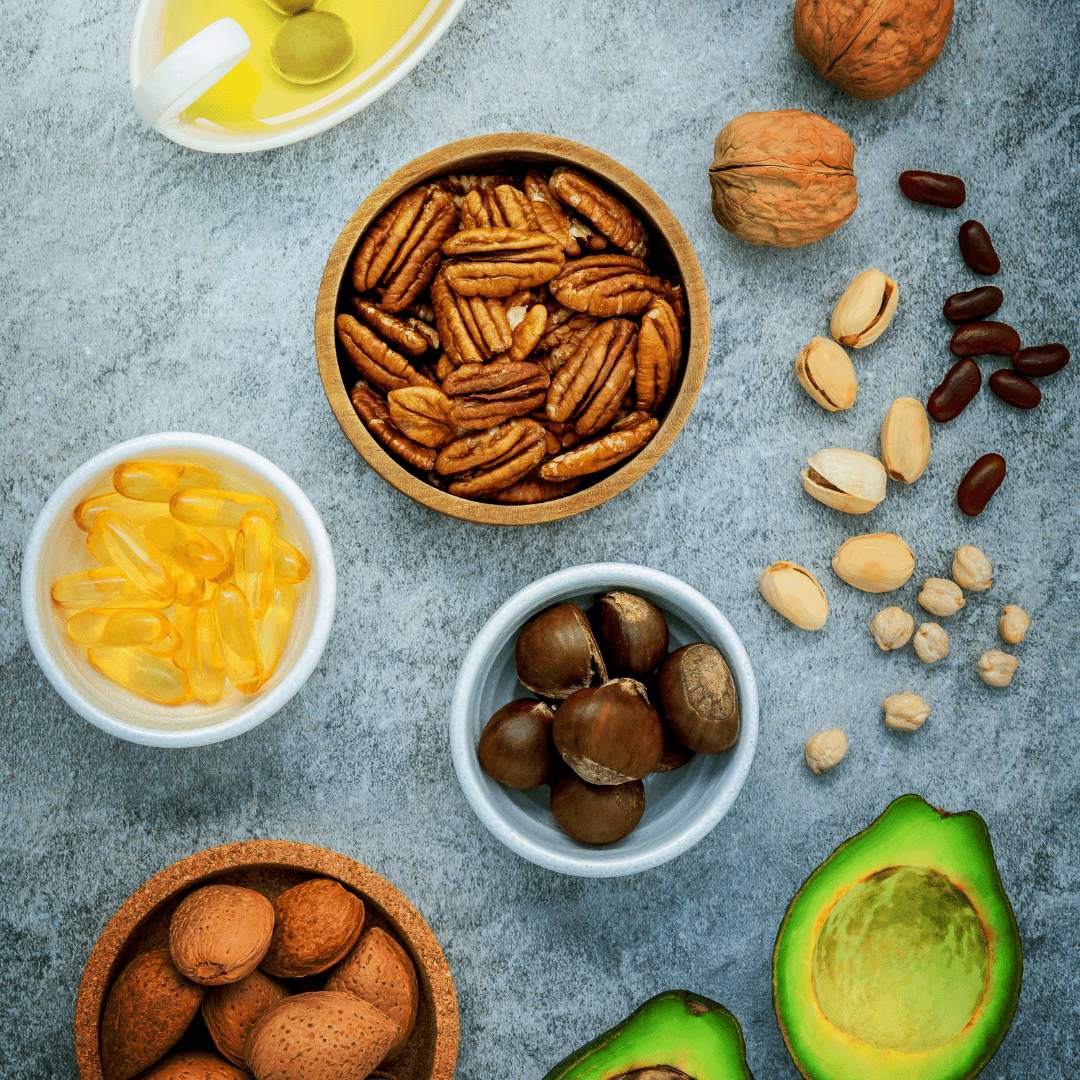
Vegan Foods That Have Omega-3
Vegan foods are rich in omega-3 fatty acids, essential for heart, brain, and overall health. From flaxseeds to leafy greens, they offer nutritious options for vegans seeking to boost their omega-3 intake. Here is a list of vegan foods that have omega-3 fatty acids:
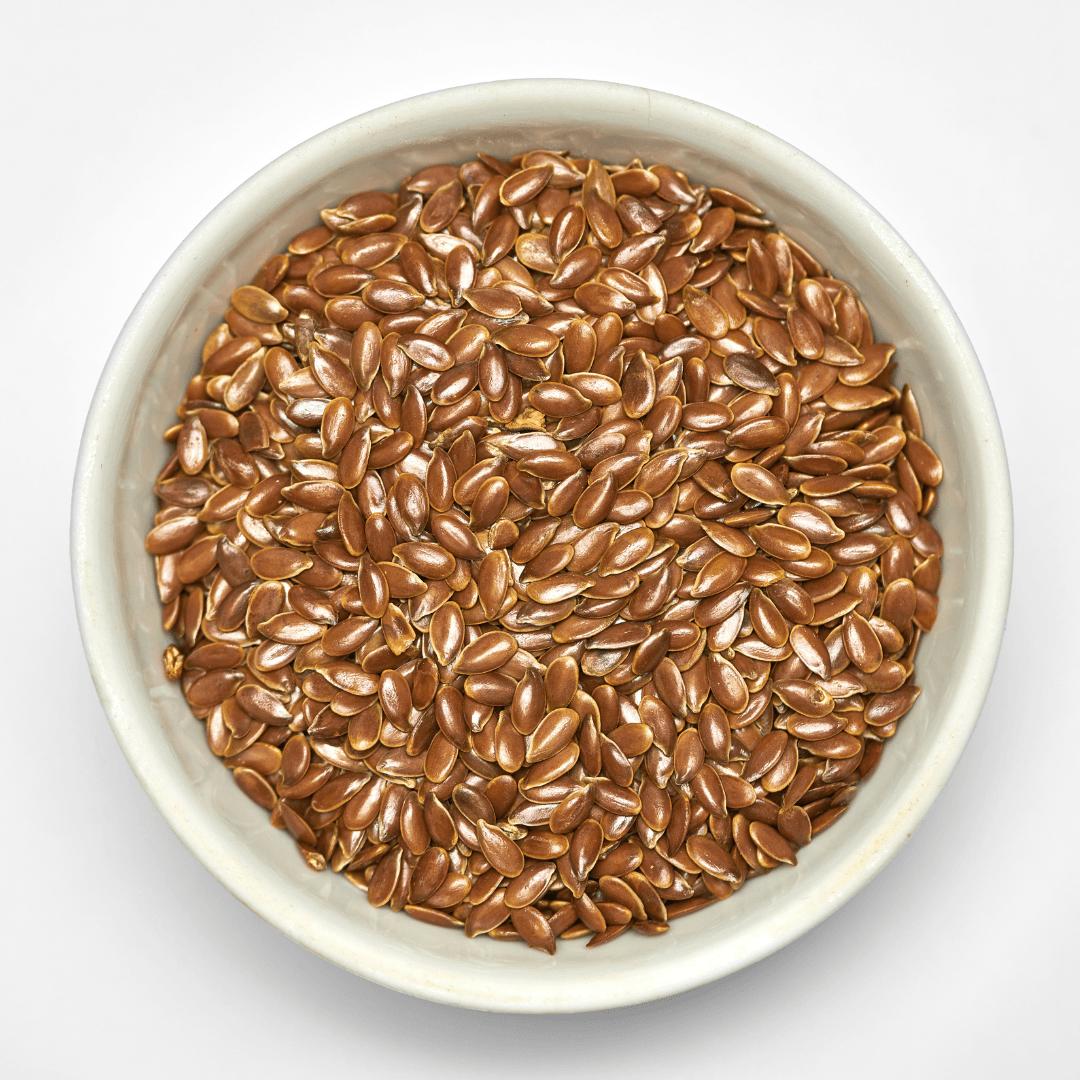
1. Flaxseeds
Flaxseeds are a nutritional powerhouse, offering a rich source of ALA (alpha-linolenic acid), a crucial omega-3 fatty acid essential for optimal health.
Whether consumed in their whole form or as oil, flaxseeds provide a convenient and versatile way to boost omega-3 intake in the diet.
Regular consumption of flaxseeds has been associated with various health benefits, including supporting heart health, reducing inflammation, and promoting brain function, making them a valuable addition to any balanced diet.

2. Chia Seeds
Chia seeds are a great source of ALA (alpha-linolenic acid), an important omega-3 fatty acid, and many other nutrients necessary for good health.
Their adaptability makes them a perfect complement to any diet; you can thicken soups and stews, combine them into smoothies, or sprinkle them over salads.
Adding chia seeds to your meals, you can boost your intake of omega-3 while reaping the benefits of vegan omega-3.
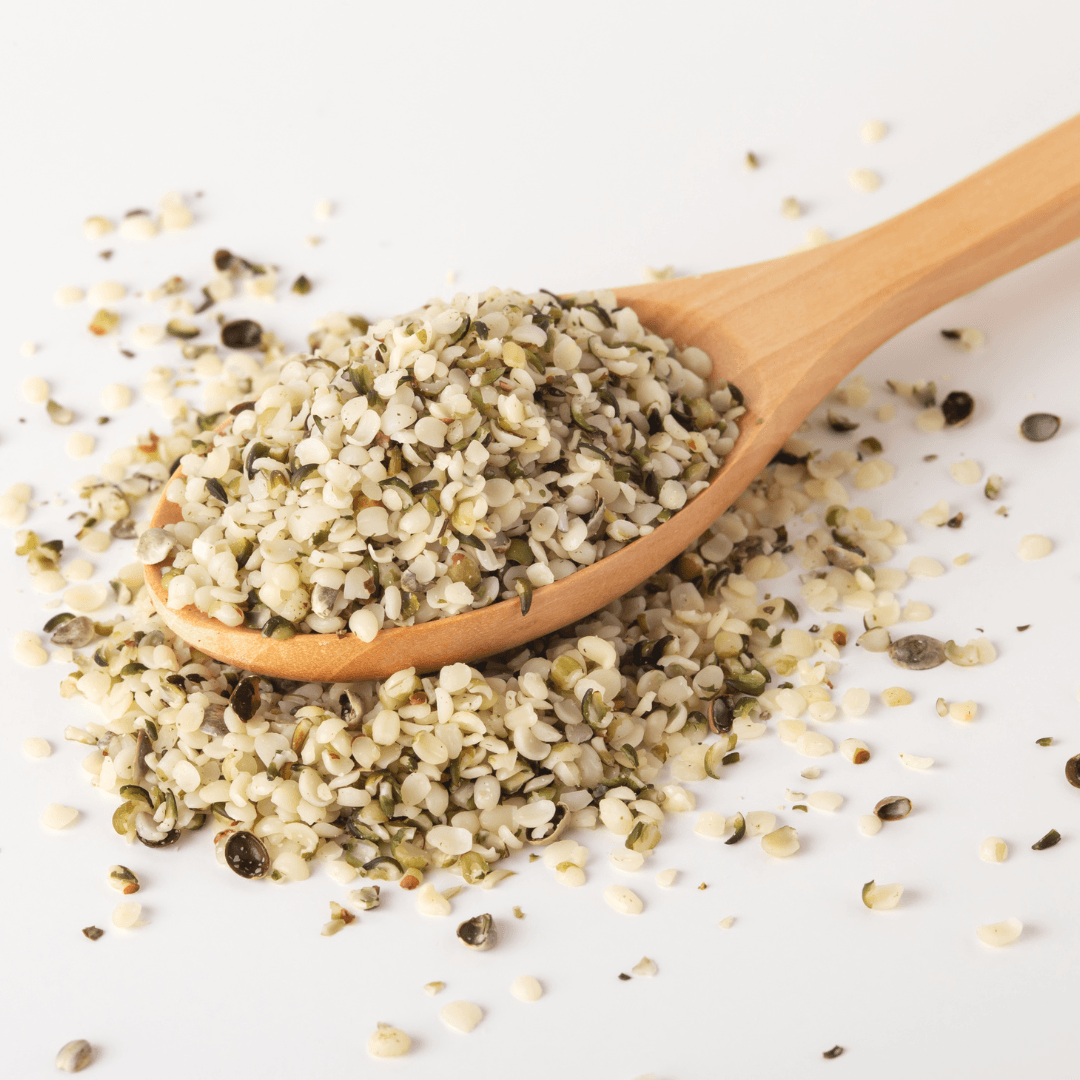
3. Hemp Seeds
Hemp seeds' omega-3 and omega-6 fatty acid ratios make them a balanced and nutrient-dense supplement to various recipes.
Whether sprinkled on salads, mixed into cereals, or baked goods, hemp seeds can enhance omega-3 intake while providing essential nutrients and a delicious nutty flavour.
With their versatility and nutritional benefits, hemp seeds are valuable for promoting overall health and well-being.
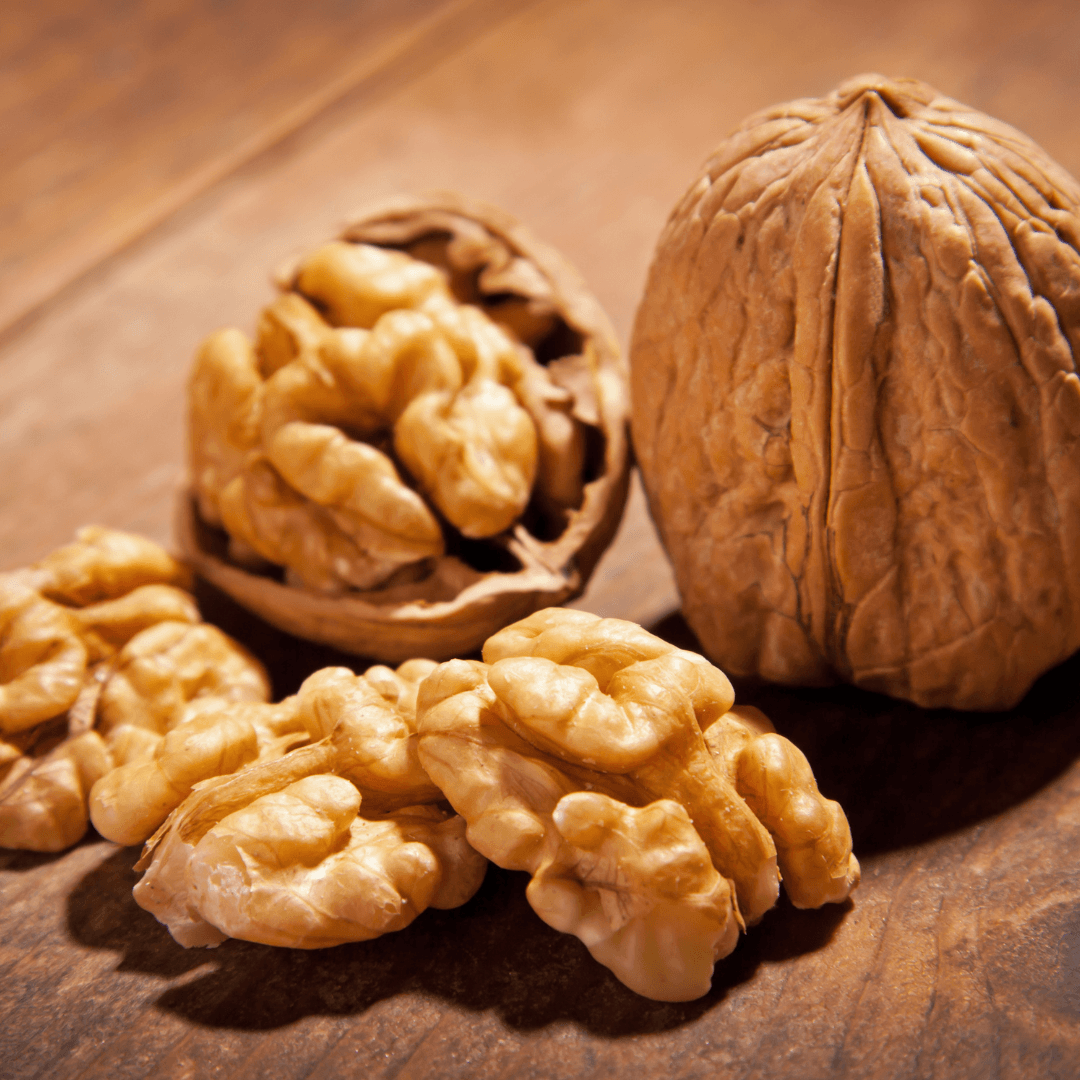
4. Walnuts
Walnuts stand out for their abundance of ALA (alpha-linolenic acid), a vital vegan food containing omega-3 fatty acids.
Their unique profile makes them a versatile addition to snacks, salads, and baked goods. By incorporating walnuts into your diet, you effortlessly enhance your omega-3 intake, promoting heart health and overall well-being.
With their satisfying crunch and rich flavour, walnuts offer a delicious way to support your health while enjoying a convenient and nutritious snack or meal addition.
5. Algal Oil
Algal oil is an excellent omega-3 fatty acids (DHA and EPA) source and is suitable for vegans. It is derived from algae.
This sustainable alternative ensures individuals can meet their omega-3 needs without relying on animal-derived products.
By incorporating algal oil into their diet, vegans and vegetarians can enjoy the benefits of EPA and DHA, supporting heart, brain, and overall health while adhering to their ethical principles.
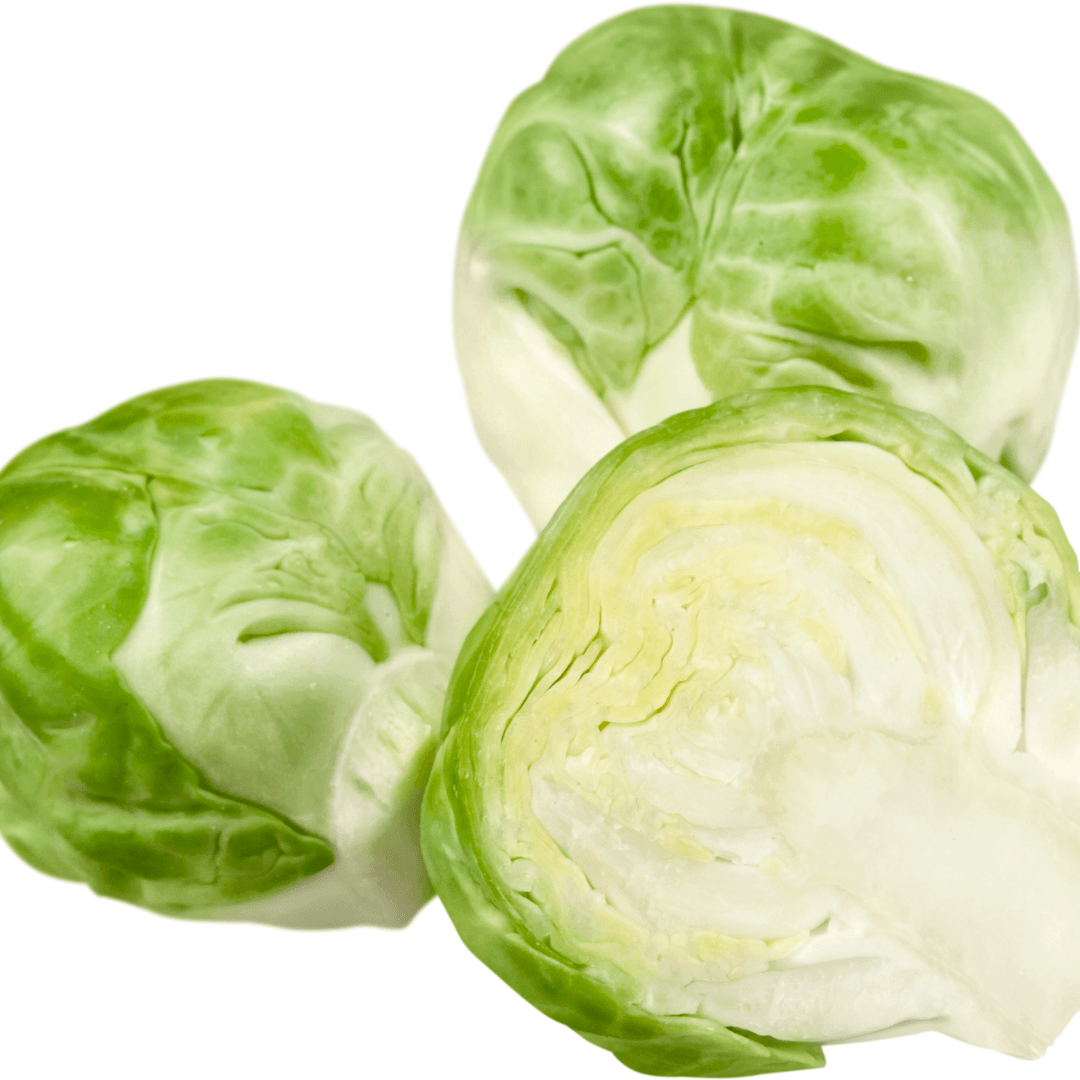
6. Brussels Sprouts
Brussels sprouts, a member of the cruciferous vegetable family, are a tasty way to incorporate omega-3 fatty acids into your diet because of their high ALA (alpha-linolenic acid) content.
These nutrient-dense greens offer a versatile culinary canvas, whether roasted, sautéed, or added to salads.
By enjoying Brussels sprouts regularly, you savour their delicious taste and effortlessly boost your omega-3 intake, delectably promoting heart and overall health.
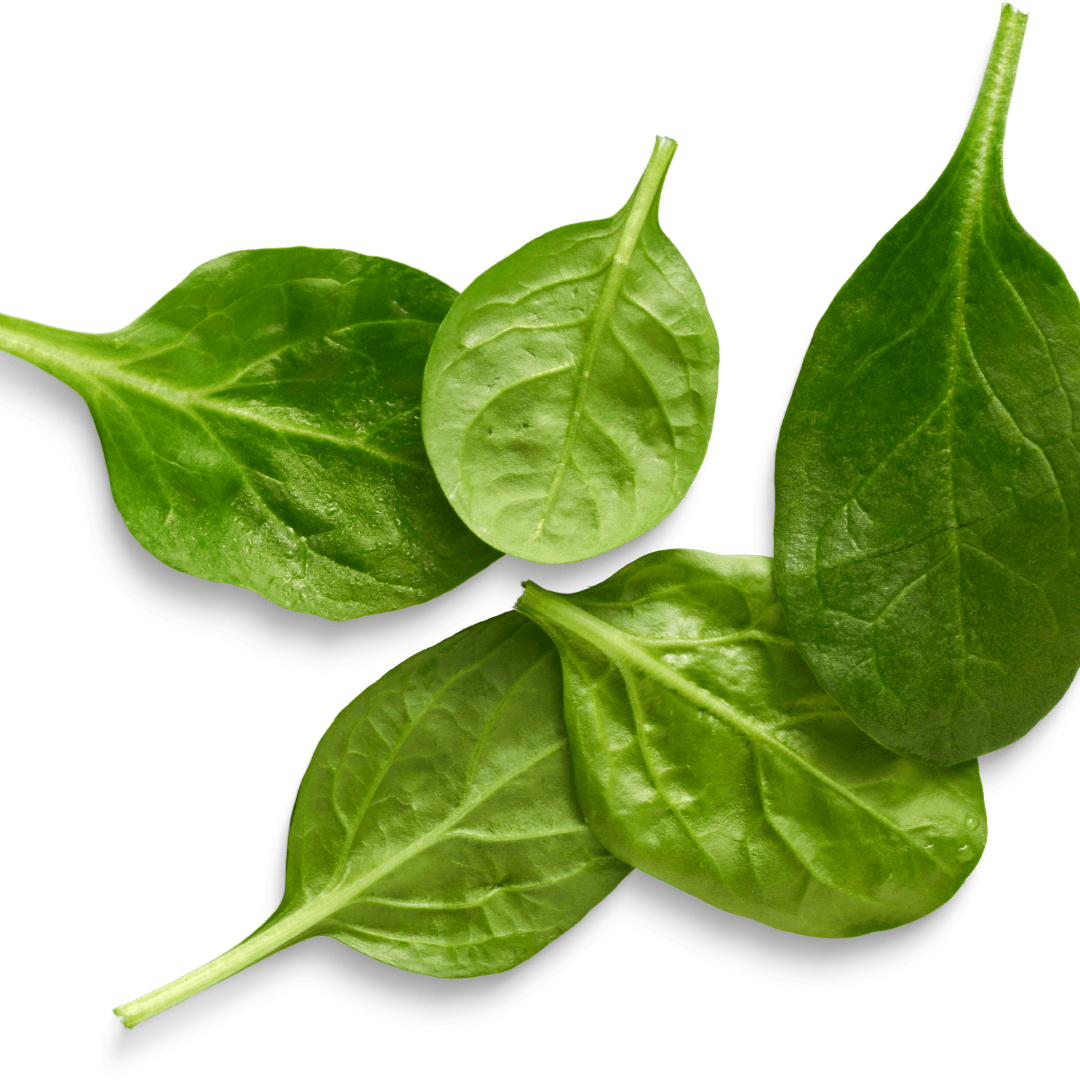
7. Spinach
Spinach, a vibrant leafy green, is packed with ALA (alpha-linolenic acid) alongside an array of essential vitamins and minerals, rendering it a nutritious addition to salads, stir-fries, or smoothies.
Its adaptability makes it simple to add to various recipes, giving your meals a tasty and nutritious boost.
By incorporating spinach into your diet, you can reap the benefits of vegan omega-3 content and a myriad of nutrients that promote general health and vitality.
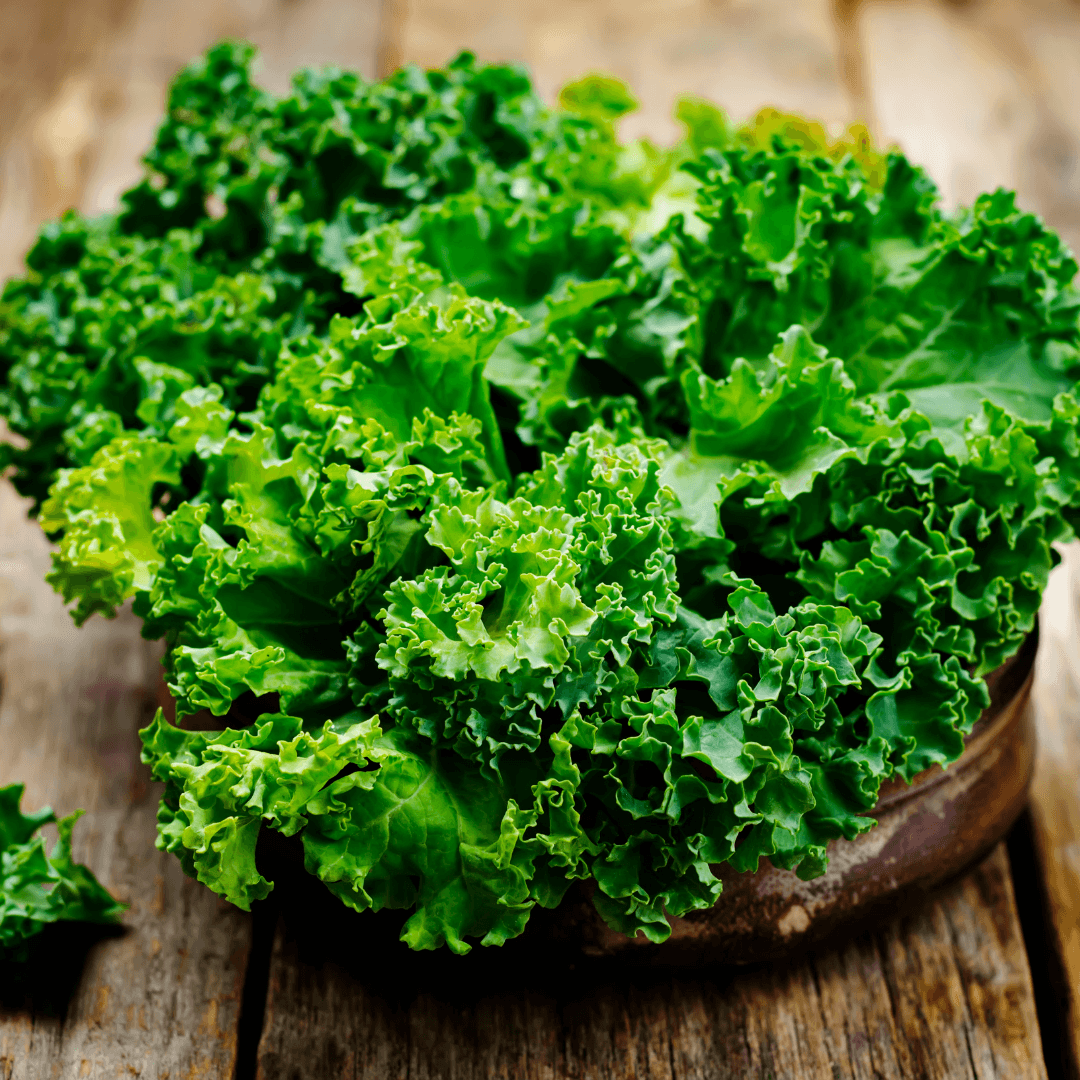
8. Kale
Kale, renowned as a nutritional powerhouse, offers ALA omega-3 fatty acids alongside other essential nutrients crucial for overall health.
This leafy green is versatile in its culinary applications. It can be enjoyed in salads, soups, smoothies, or even crispy kale chips.
Including kale in your diet will help you reach your optimal health and well-being goals by increasing your consumption of omega-3s and providing many vitamins, minerals, and antioxidants.
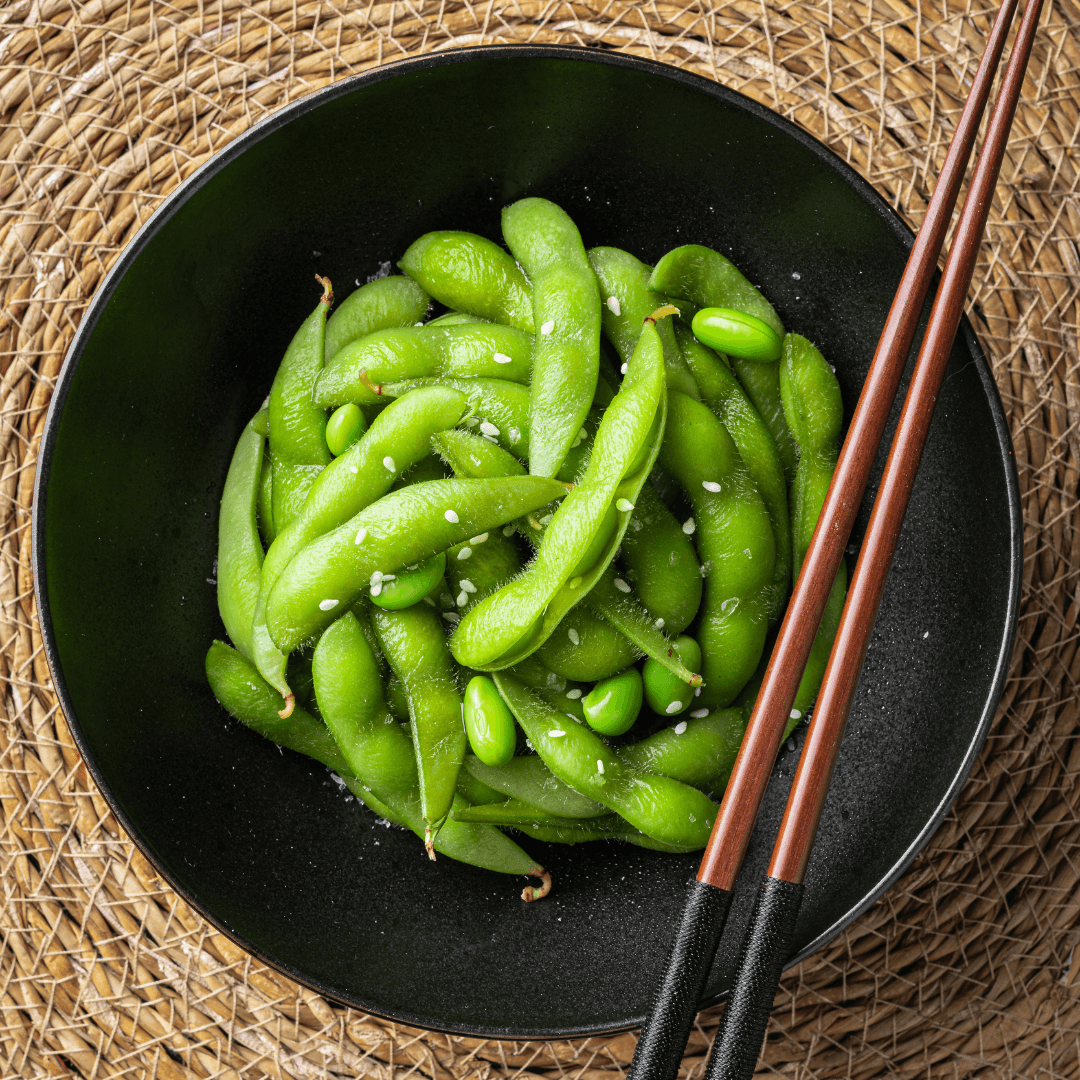
9. Edamame
Edamame, the young and vibrant form of soybeans, is a notable source of ALA omega-3 fatty acids and offers versatility in consumption.
Whether enjoyed as a convenient snack, tossed into salads for added texture and nutrition, or incorporated into flavourful stir-fries, edamame provides a delectable means to enhance your omega-3 intake.
Beyond its omega-3 content, edamame boasts a wealth of protein, fiber, and essential nutrients, making it a wholesome addition to any balanced diet.

10. Soy Products
The omega-3 ALA fatty acids in soy products, such as tempeh and tofu, provide culinary flexibility.
These plant-based proteins can be utilized in many dishes, from stir-fries to salads and sandwiches.
Incorporating tofu and tempeh into your diet boosts your omega-3 intake, provides essential nutrients, and adds depth to your culinary repertoire, making them valuable components of a balanced and nutritious plant-based diet.

11. Canola Oil
Canola oil, renowned for its high alpha-linolenic acid (ALA) content, is a versatile and heart-healthy option in vegan cooking.
Its mild flavour makes it ideal for various culinary applications, from drizzling over salads to sautéing vegetables.
Not only does canola oil provide a source of omega-3 fatty acids, but its stability at high temperatures also makes it a reliable choice for cooking methods like frying and baking, ensuring the preservation of its nutritional benefits of vegan omega-3.
12. Soybeans And Tofu
Soybeans and tofu are versatile plant-based foods that offer a range of nutritional benefits, including omega-3 fatty acids, albeit in smaller quantities than other sources.
Soybeans contain alpha-linolenic acid (ALA) and omega-3 fatty acids. While the ALA content in soybeans isn't as high as in flaxseeds or chia seeds, it's still notable, especially when consumed regularly as part of a balanced diet.
Tofu, made from soybeans, also contains ALA, although the processing involved may slightly reduce its omega-3 content compared to whole soybeans.
Nonetheless, incorporating tofu into your meals provides a source of protein and a modest amount of omega-3 fatty acids.
To maximize the omega-3 content from soy products, opting for minimally processed forms such as edamame (young soybeans) or tempeh (fermented soybeans) may be beneficial.
Additionally, choosing organic and non-GMO soy products ensures you get the most nutritionally rich options.
FAQ
1. How Much Omega-3 Do Vegetarians and Vegans Need?
Answer: Vegetarians and vegans require omega-3 fatty acids like everyone else, but they may need to be more mindful of obtaining adequate amounts from plant-based sources.
The recommended daily intake of omega-3s varies, but experts generally suggest aiming for about 250-500 mg of combined EPA and DHA per day.
This can typically be achieved by consuming foods rich in ALA, such as flaxseeds, chia seeds, walnuts, hemp seeds, fortified foods, or algal oil supplements.
Vegetarians and vegans must maintain a balanced diet to meet their omega-3 needs for optimal health.
Conclusion
In conclusion, the benefits of vegan omega-3 fatty acids in one's diet are manifold. Not only do they support heart, brain, and joint health, but they also promote overall well-being by reducing inflammation and potentially contributing to longevity.
Moreover, various vegan foods offer rich omega-3 fatty acids, ranging from seeds and nuts to algae-derived oils and leafy greens.
By embracing these plant-based sources, individuals can meet their nutritional needs while adhering to ethical and sustainable dietary choices.
Thus, integrating vegan omega-3s and omega-3-rich foods into a balanced diet provides a holistic approach to health and vitality.
I trust you enjoyed reading the Amazing Benefits Of Vegan Omega-3. Please stay tuned. More blog posts will come very shortly.
JeannetteZ
>>>Want To Learn How To Create Delicious, Cruelty-Free, Healthy AND 100% Vegan Meals? Try These Awesome Vegan Cooking Courses With A Free 7-DAY MEMBERSHIP<<<
Your Opinion Is Important To Me
Do you have thoughts, ideas, or questions? I would love to hear from you. Please leave me your questions, experience and remarks about the Amazing Benefits Of Vegan Omega-3 in the comments section below. You can also email me at Jeannette@livingtheveganlifestyle.org.
Disclosure
This post may contain affiliate links. I earn from qualifying purchases as an Amazon Associate and other affiliate programs. Please read my full disclosure.
You might also enjoy these blog posts:
8 Delicious Homemade Vegan Cheese Recipes For Your Kids
6 Best Vegan Lentil Recipes For Your Kids
9 Best Vegan Coconut Dessert Recipes For Your Kids
Italy Vegan Travel Guide With Popular Vegan Restaurants
Germany Vegan Travel Guide With Popular Vegan Restaurants

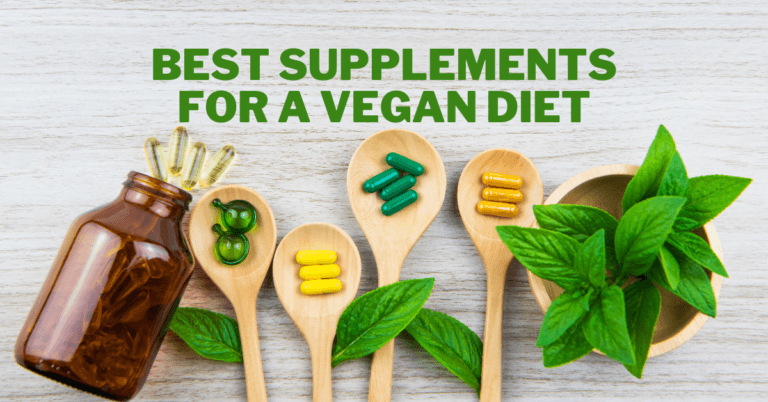

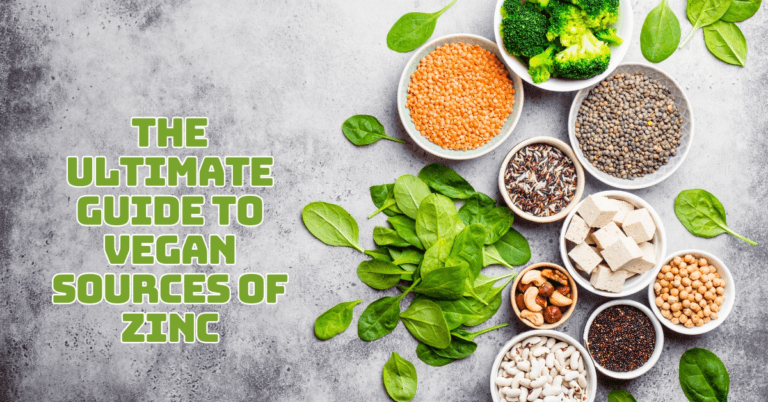


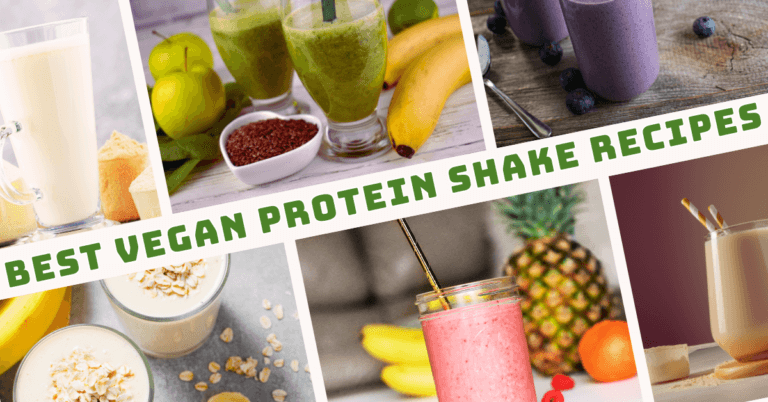
Wow, amazing guide and I am sure people will love it. Please keep postings like this blog.
Thank you very much for your comment, Daniel.
Jeannette